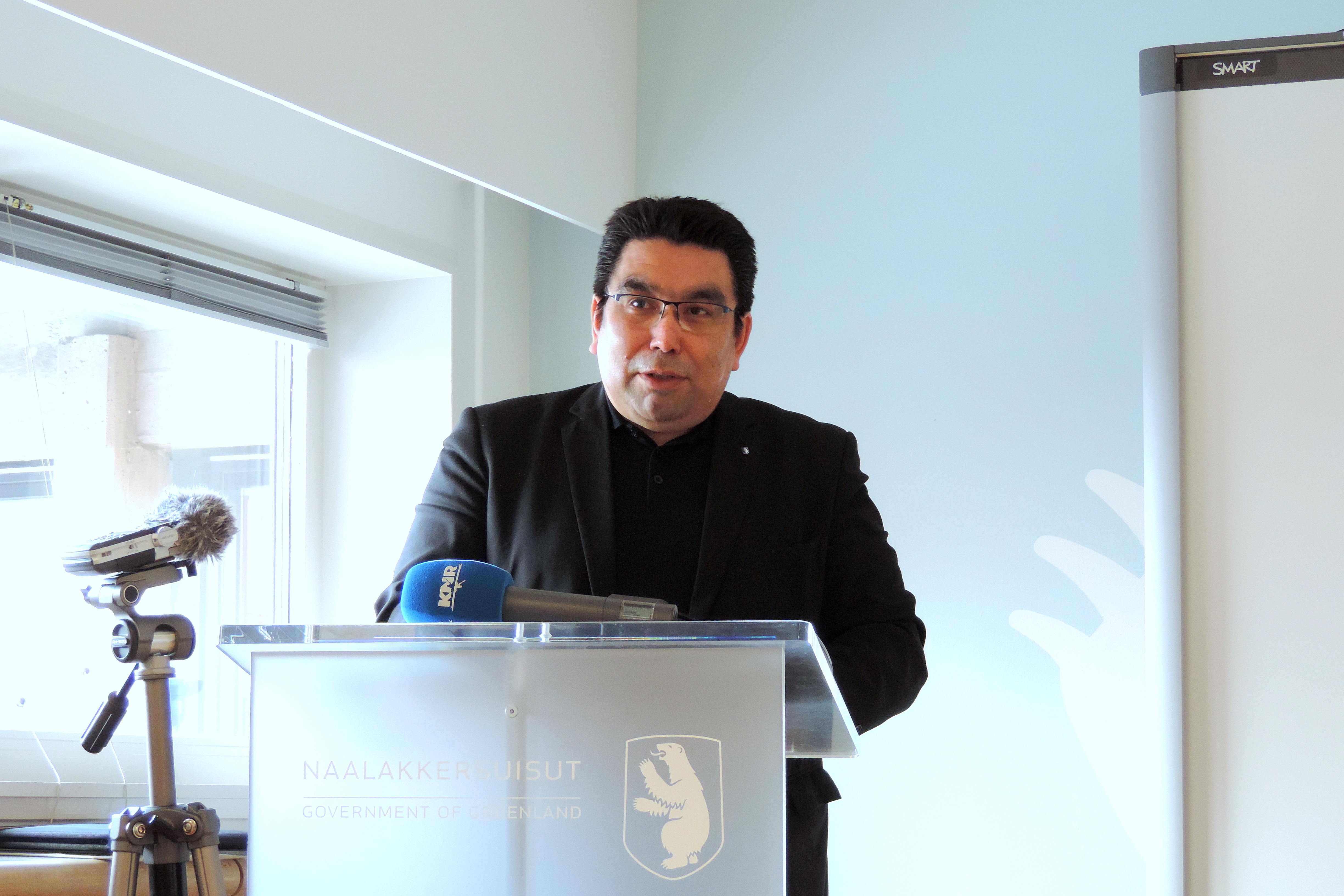Greenland leader’s remarks stir up controversy abroad — and at home

To get a sense of the controversy that Vittus Qujaukitsoq, Greenland’s foreign minister, has kicked up in recent days, consider the newsfeed on SermitsiaqAG, a sister website to The Arctic Journal and one of the country’s most visited news outlets. At one point, seven of the 10 most-read articles from the previous 24 hours related directly or indirectly to one of several comments Qujaukitsoq had made the day before.
The first of these came in an article on the front page of the Tuesday edition of Politiken, the Danish newspaper of record, in which he complained that what he perceived as Danish arrogance towards its former colony was “destructive” to the future of relations between the two countries. In the same article, he aired the possibility of issuing an ultimatum to the United States to pay for the land it uses for its military installation in Greenland.
The second, reported later the same day by Nunatsiaq News, a Nunavut news outlet, dealt with comments Qujaukitsoq made during a gathering in Québec. His statements welcomed the arrival of Donald Trump America’s next president, and the prospect of an individual with private-sector experience becoming the next secretary of state.
“For the sake of our Arctic region, I sincerely hope that the president-elect will choose as secretary of state an outstanding individual with comprehensive experience from the private sector. This will be of benefit to our region.”
[Greenland welcomes pro-oil and gas Trump administration, leader says]
In an address made during the same gathering, he also talked up the potential benefits to Ottawa and Washington of closer diplomatic and transport ties with Nuuk. (Currently, both go through Copenhagen.)
In a third news article, an interview in AG, a weekly newspaper published by The Arctic Journal’s parent company, he made it plain that he believes Denmark’s role in the Arctic is coming to an end.
“As more authority gets devolved to Greenland it becomes harder to argue for the relevance of Denmark’s participation in the [Arctic C]ouncil,” he said in the interview, republished in English here.
None of the statements lie far from what he or others in government have stated before. Nor do they differ significantly from what has come to be taken for granted in Nuuk: that independence from Denmark is only a matter of time.
Any uncertainty about how serious Nuuk was about the latter should have ended when Kim Kielsen, the premier, added an independence minister to his cabinet this autumn. One of the new minister’s jobs is to oversee establishment of a commission to come up with a constitution that can be used by an independent Greenland.
Yet, Qujaukitsoq’s plain speech, it appears, will require some explaining when he returns to Nuuk. The chair of the national assembly’s foreign policy committee, for example, has invited him to clarify his statements to its members.
His boss, apparently, would also like to have a word with him. In a statement issued Wednesday, Mr Kielsen stated five times that the matters Qujaukitsoq brought up had not been discussed by the cabinet in advance.
Kielsen, like others who were taken aback by his foreign minister’s statements, takes issue not so much with what was said, but with the tone in which it was delivered. The premier, for example, admitted that Copenhagen and Nuuk do not see eye-to-eye all the time. And when it comes to the American base, he has also suggested that financial compensation of some sort is needed. But such problems, he wrote, were best solved through dialogue.
Statements of this sort are meant as a reassurance that Nuuk believes co-operation is the path forward.
But, for Greenlanders of a certain age, the way the situation is unfolding will have a familiar feel: in the 1970s and ‘80s, the country’s leaders played a similar bad politician-good politician game towards Copenhagen in their efforts to wrest more authority to Nuuk.
Qujaukitsoq’s behaviour may not be so foreign after all.